These are the supposed words of Joan of Arc to the English Army at the Battle of Orleans. So I think they are very appropriate now in the wake of the WPATH Files as we utter them to the Gender Borg! As to whether that will work as it did at Orleans is another question! See further below.
Now I know that Milla Jovovich as Joan of Arc in the 1999 film version did not get great plaudits ( indeed she was nominated for a Golden Raspberry Award) but I still will always love the Battle of Orleans scene. So, for me ( and maybe only me!), she is No 10 in the Leading Female Season.
I am reliably informed that, compared to the actors in Hollyoaks, Milla should have got an Oscar for this performance 😂
Any further suggestions for the season gratefully received by the way and thanks to those who have already made suggestions.
Vote No NO Tomorrow
One last push from me before tomorrow’s Irish Referenda.
Firstly, excellent interview by Róisín Michaux on a podcast called Peaked with Sandra Adams of the wonderful Countess:
https://peaked.substack.com/p/irelands-constitutional-woman-ectomy?publication_id=1053023&r=1v403b
And then Róisín’s excellent article:
Ireland's constitutional woman-ectomy ( 07 March)
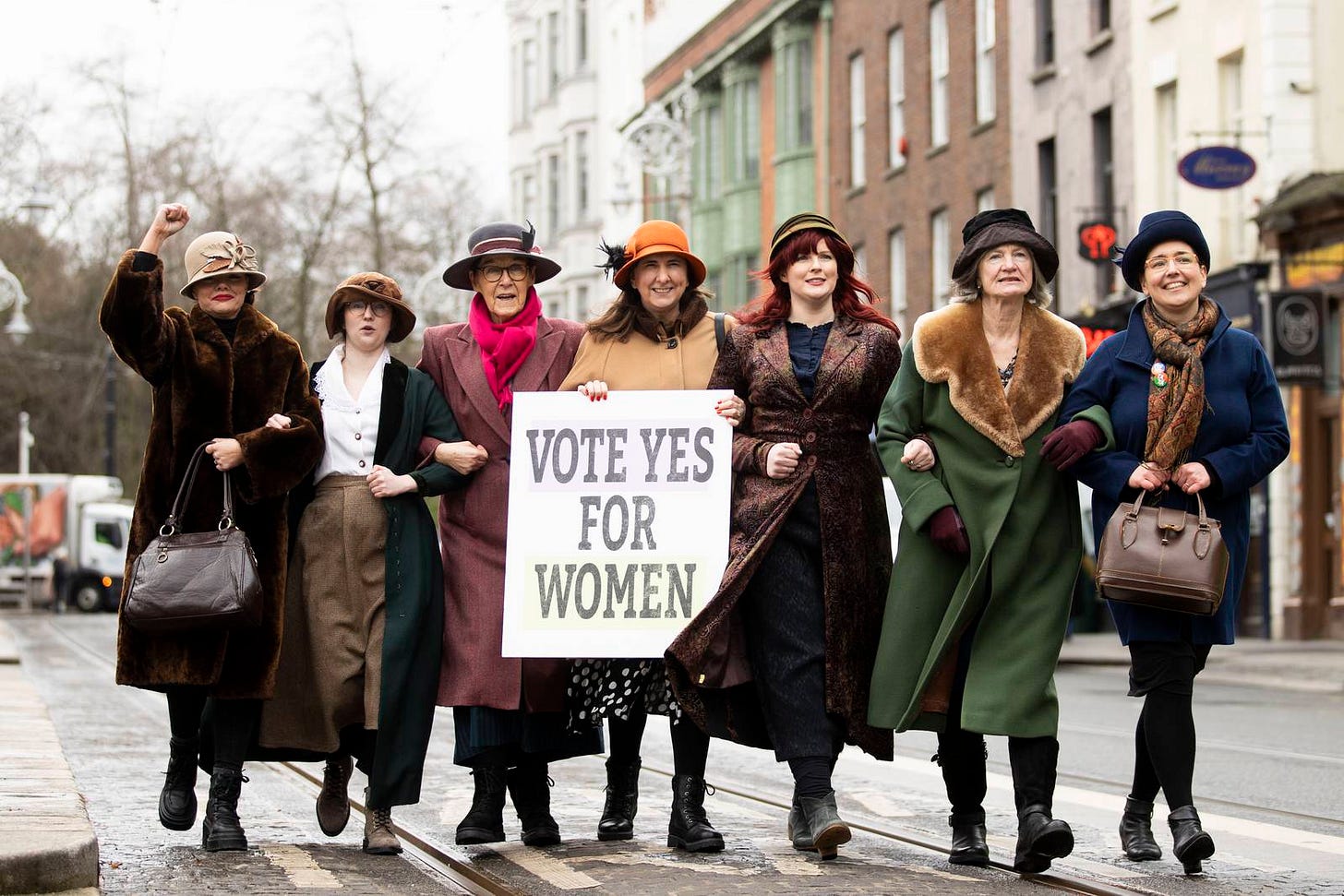
There are many seriously insulting things about the transvestification of womanhood - one of my chief beefs is the way the acronym HRT, used to describe hormone replacement therapy for women going through the menopause, has been stolen and repurposed by men who use it for aesthetic enhancement (not that it works).
First they hijacked the HRT name, then they hijacked the HRT supply chain; the increased demand for synthetic female hormones has put intense strain on an already patchy supply. In the past few years, hormones intended for sweating, sleepless women have been rerouted to autogynephiles convinced that synthetically-induced breast buds will help them reach that gender high. (They even wrote to the UN high commissioner of human rights to complain about the shortages.)
But probably even worse than all that is the way that the most vile trolling of women happens on the day purportedly to be for us and about us. Yes, we’ve reached the eve of International Women’s Day (IWD) and I am already on high alert for all the men in party shop wigs who will appear on panels, in videos, and in newspaper articles, making statements about how the day is for them, actually. The theme of IWD this year is “inclusivity”, which almost guarantees a man in a dress will be celebrated as the very bestest of women. Deep breaths, ladies. I feel like this one’s gonna be rough.
Taking the trolling to never-before-achieved levels, the Irish government and its NGO army announced a few months ago that it was time to excise the Irish constitution of any mention of women - and that the referendum on the issue would be held on IWD.
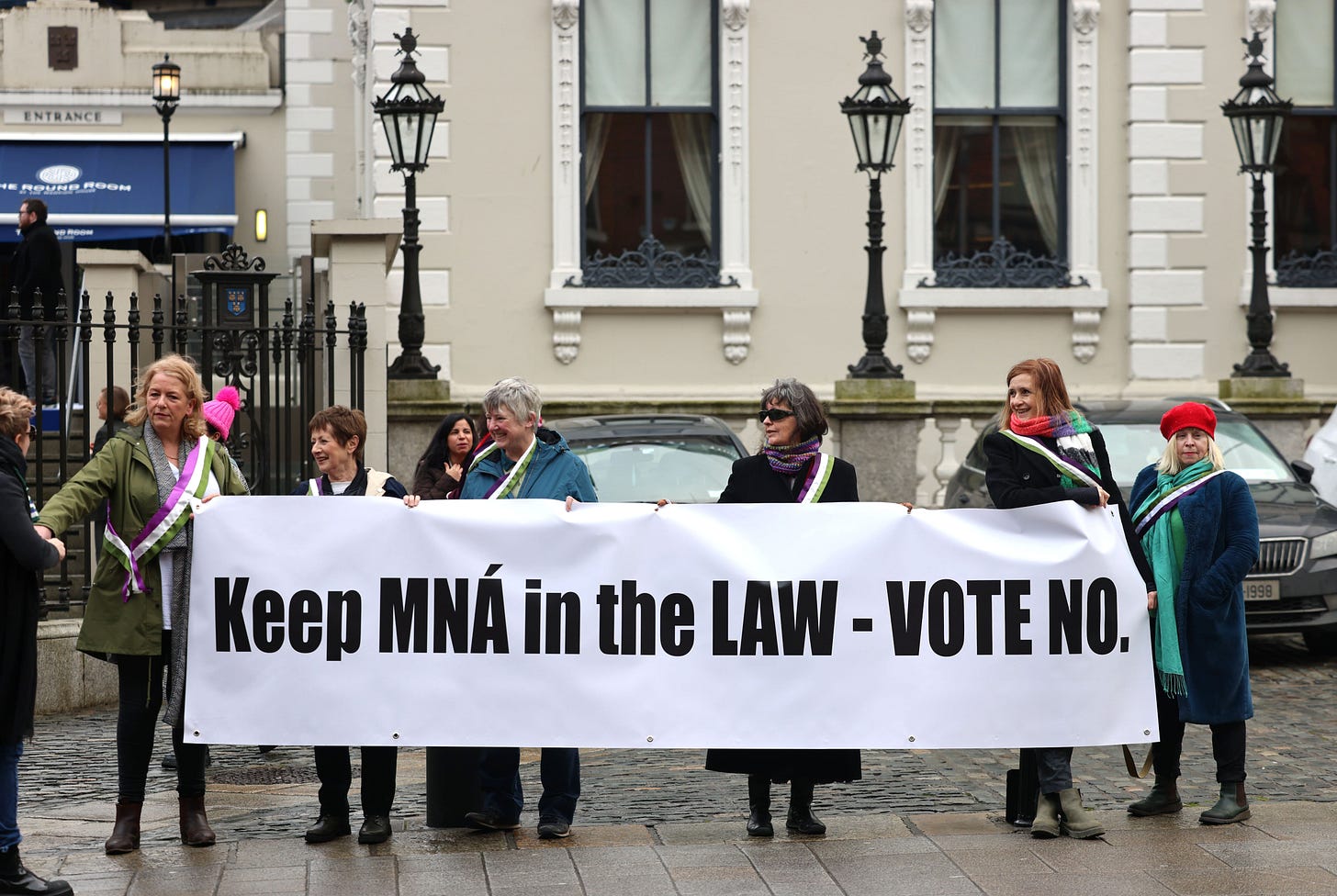
The reason? For 100 years or so, the text has contained a reference to women’s “duties in the home”, which at first glance seems mighty sexist. I grew up knowing vaguely about misogyny in the constitution. But I was also told that it didn’t have any real effect in the real lives of women, and that it was simply - symbolically - not ideal.
But as we are learning, the offending text has a progressive interpretation that could have been deployed in legal cases throughout the decades by women who didn’t want to be pushed out to work after they had kids. The text actually makes it possible to make the case that a woman’s duties to her kids are more important to society than working (hard to argue with that). Tucker Carlson (I know) and founder of the Irish women’s rights advocacy group the Countess, Laoise de Brun, explain this nicely here.
It certainly seems part of the international effort to chip away at any and all mention of sex in law and policy. The Countess have already run successful campaigns to stop the removal of sexed language in Irish law before, but it’s happening in other countries too. Just this week the Dutch government tried to remove mention of mothers from a piece of legislation, claiming they were just cleaning up the grammar, when someone spotted by chance that “mother” had been replaced with “parent from whom the child is born”. The pols claimed it was simply a mistake, but it seems like they thought they could get away with it. The backlash unequivocally proved they could not, and the change was undone.
I spoke to Sandra Adams, the spokeswoman for the Countess, who told me that the government could have, for example, made the text less sexist by proposing to edit it to simply add fathers alongside mothers. (Another Irish campaigner, Sarah Holmes, combed through the constitution text and found 114 references to male sex pronouns that nobody seems bothered about).
So is it really about evening the playing field, about making our founding legal document symbolically more egalitarian? Or does it have something to do with international pressure to gender-neutralise everything, or maybe the upcoming legal changes to surrogacy laws - or something else?
Sandra and I thrash out a few theories, and she tells me why, without clarification on a few essential points, the best thing for the people of Ireland to do tomorrow is to #VoteNoNo. Enjoy agus beannachtaí.
The Countess
The Countess team have been tirelessly touring around Ireland arguing for a No No vote tomorrow.
Here is Sorcha Nic Lochlainn in Kinvarra:
Also shout out to wonderful Gript News who have been equally tirelessly pushing for a No No vote. Two pieces from them.
THE EDITORS: A DOUBLE “NO” IS NOT ONLY THE BEST OPTION, BUT A SOLEMN DUTY (06 March).
A constitution has two primary purposes. The first is to establish the institutions of the state – to circumscribe the powers of the President, the Oireachtas, and the Courts, and the ways in which those bodies interact.
The second, and much more important purpose, is to put limits on the power of the state. That is why, more than any other legal instrument, the Constitution is the people’s document. It is the piece of paper that stands between you as a citizen, and the worst instincts of politicians. Ministers who wished to seize your property, or detain you without trial, would find the constitution standing between them, and their intended target. It is, and shall ever be, the last line of defence for the ordinary citizen facing the power of the Government.
It is because of this vital role that the constitution plays that when politicians seek to change the text of the constitution, their desire to do so should in all circumstances be viewed with skepticism as a starting point. This is our document, not theirs, and altering the fundamental relationship between the citizen and the state is not something that should be done lightly, or without overwhelming evidence of the need for change.
In the case of the referenda to be held on Friday, it is our considered view that no overwhelming – or even passable – evidence of a need for change has been presented to the public.
In the case of the first referendum, which proposes to remove the reference to “women’s duties in the home”, it should be remembered that those who now seek to remove that article are not so many years removed from having defended it. In 2017, for example, Eamon Ryan described the article he now wishes to delete as “quite progressive”, saying that “it was originally enshrined to protect us from what were then the excessive powers of business”.
It simply cannot be argued that the reference to women in the home has negatively impacted Irish women, or their prospects. In its lifetime as part of our constitution, that article has borne witness to two female Presidents, a female Chief Justice, the transformation of women’s role in Irish society, and laws enshrining political gender quotas into our national statute books. The constitution has stood in the way of none of that change. All that it has done, throughout that time, has been to recognise the contribution to Irish society made by hundreds of thousands of women who chose to devote a greater portion of their lives to the well-being of their family and children. A society that truly wishes to respect women would not be embarrassed, or ashamed, of that recognition.
In the case of the second referendum, which proposes to alter the legal definition of the family to include those in “durable relationships” outside of marriage, it is also true that no passable evidence of a need for change has been presented to the public. It remains the case that anybody in this country who wishes to have state recognition of their relationship may get married, and in so doing receive the protections the constitution offers.
It is important to remember that marriage is not only a one-way street, when it comes to a couple’s relationship with the state. At present, to get the state involved in your relationship, you must invite it into that relationship as the third party – the guarantor – of your marriage. Nobody can get married without intending to do so, and signing a public declaration of their intent.
This is not the case with durable relationships. The state is offering us an undefined term and promising us that it will protect relationships of an undefined nature. This opens the prospect of people ending up in a legally recognised relationship, with legal responsibilities and duties, without ever having intended to enter one or being aware that they were entering one. It risks conferring on the state, via politicians or the courts, the power to decide things that at present, only a couple can decide by themselves. In the case of the already fractious area of inheritance law, for example, it risks people dying without realising that the courts may later define a relationship they had as akin to marriage and altering the terms of their will. These are not only our concerns as an editorial board, but the concerns of some of the most eminent lawyers in the country.
Those lawyers, of course, may well be wrong, as might we. The public have to take the risk, however, that they are correct, with all the consequences that would entail. As Senator Michael McDowell convincingly argues, “This is a recipe for an entirely foreseeable mess”.
Taking all these factors into consideration, voting No/No is not only, we believe, the best option, but the solemn duty of an engaged and active citizen.
Our role in this democracy, as voters, is to hold our politicians to account for the decisions they make, and act as the last line of defence against incompetence and capriciousness on behalf of those who govern us. In this instance, we have been presented with incoherent and poorly thought out changes, with no compelling rationale for making those changes. The constitution was given to us, the electorate, to guard. It cannot be changed without our consent.
The price that we place upon that consent should be high. In this case, the politicians have not met it, and do not deserve our trust. We urge the rejection of both referendums on Friday.
Sorcha Nic Lochlainn writes:
THE CORRECT ANSWER TO CONFUSION TOMORROW IS “NO, THANKS” (07 March)
As a grassroots organisation, The Countess has been campaigning hard for a No/No vote tomorrow since our campaign launch on the eighteenth of January. Our teams have canvassed across the country, our spokespeople have been on local radio stations, and we have written in local newspapers. We have been talking to people of all ages and all backgrounds and most are saying that these proposed amendments are not good enough. People are also very angry about the rushed process, with many saying they had little to no official information through the door. In the first few weeks of canvassing, a lot of people didn’t even know there was a referendum planned! This is in stark contrast to previous referendums, when the issues were clear and voters just wanted to hear arguments for/against.
On the Family amendment, while most people are sympathetic to single parents and co-habiting couples, and other families as well, they are also confused about the vague wording and the intent behind it. We have found ourselves in the odd position of doing the state’s work, explaining what we think they mean and what the possible outcomes might be. That’s even before we explain why we are asking people to vote No.
At a lively debate in Galway on Monday organised by Abortion Access Campaign West, Green Party Senator Pauline O’Reilly again suggested that this vagueness was not only deliberate but also desirable. I can tell you from conversations had on streets across the country that people are not buying it. A durable relationship could be anything they say. Yes we say, and then they ask why and we have to say, “We don’t know”. And we don’t. And that is deliberate. When Roderick O’Gorman says the people don’t need to know, the people should rightly say “Then it’s a No.”
The Care amendment has not brought the same confusion as the Family one, but we have had to correct a lot of misinformation about what Article 41.2 actually says, including Minster Catherine Martin’s famous “It’s not reflective of today’s society for our constitution to say that a woman’s place is in the home.” Most people, when they read the article wording, say yes this is fair enough. Some want it to include fathers, which is not unreasonable. Not many agree with its deletion. The Irish respect for women and mothers is alive and well, and Estelle Birdy was excellent at Monday’s event in Galway, in putting forward why this article is actually progressive in its recognition for women and mothers.
Most ordinary people have some experience in caring for sick, elderly, or disabled relatives and when the wording of the proposed Article 42B is discussed, they laugh at the word ‘strive’. They are well acquainted with the state’s idea of “striving.” People share Tom Clonan’s view, so passionately put forward in the Seanad and even more powerful in person, as I saw in Galway on Monday, that this proposal is insulting and unfeeling, placing the burden of care squarely within families, where it will mostly fall on the shoulders of women. Again, the questions come about the process – who asked for this they say; why remove it when it could be expanded? Again we say, we don’t know, but we also add, “if they haven’t convinced you of the need, Vote No.”
Everywhere we have been, people thanked us for the information, and many said how pleased they were to see canvassers. The old traditions of politicians talking to their constituents may have fallen out of favour but the people do appreciate it. Unfortunately, after the Galway event mentioned earlier, Green Party councillors Martina O’Connor and Niall Murphy and Senator Pauline O’Reilly declined to do this. They did not shake hands with their constituents and thank them for their contributions to the lively debate; instead, they left with almost unseemly haste. This was in stark contrast to Labour’s representative who, despite having to drive two hours home to speak on behalf of the Yes side in the Care Referendum, smiled and chatted before hitting the long (and presumably bumpy) road home. While we may disagree on many issues including both upcoming referendums, this was the behaviour I expected from public representatives at the meeting. Likewise Senator Tom Clonan who came all the way from Dublin stayed on to speak with the people who had attended.
We’ve all been told we can accept less than perfect, that it’s good enough, it will give a starting point, or “it’s as bad as what’s there already”. This is not what our Constitution is for, this is our foundational document, and it should be treated with respect. Those politicians holding it up as a prop saying it can’t contain everything we want are missing the point entirely. Thankfully the people on the street seem to understand this. The voters we speak to want recognition for families, parents and carers and they want disabled people’s rights enshrined, but most of all they want the democratic process respected. This referendum fails on all counts and a No/No vote would be a clear signal that the government should strive for better next time.
Sorcha Nic Lochlainn is the Sports Spokeswoman for The Countess, a non-profit, volunteer-led organisation formed to promote the rights and interests of women and children in Ireland.
Ordinary and sensible women and men of Ireland - Vote No No tomorrow.
The Women Who Refuse To Be Silenced
Excellent piece in the Daily Mail by Rosie Duffield and Jill Foster. The only shame is that Kellie-Jay Keen is not included.
The women who refuse to be silenced: She's had death threats, been 'cancelled' on TV and shunned by fellow MPs. In a rousing call to arms against those who want to erase ( 06 March).
For over a century, International Women’s Day (IWD) has been celebrated across the globe to highlight the extraordinary achievements of ordinary women. Held annually on March 8, I used to think it was a positive day. This year, however, I just feel angry
Although proud of the progress we’ve made, we find ourselves fighting on a new front — and in the unimaginable position of seeing hard-won rights being rolled back.
Incredibly, we’re at a point when even the word ‘woman’ is controversial. We’ve become ‘cervix-havers’, ‘uterus-owners’ and in extreme cases ‘non-men’. Politicians, meanwhile, flounder when asked: ‘What is a woman?’ As an MP as well as a mother, it makes me despair.
The reluctance to defend women and girls is due to a small but very vocal group of trans activists, determined to let men self-identify as women, under the guise of ‘gender ideology’.
What started as an attempt to ensure that a very small minority of people with ‘gender dysphoria’ (those who feel there’s a mismatch between their biological sex and their gender identity) were not discriminated against has morphed into a powerful global movement which allows men to claim to be women.
ROSIE DUFFIELD explains why she feels angry on this year's International Women's Day© Provided by Daily Mail
By uttering the magic words ‘I am a woman’ or ‘I identify as a woman’, suddenly men can enter female-only spaces such as refuges for the victims of rape or domestic abuse. This is without any commitment to have gender reassignment surgery or take hormones — not that that would make them women anyway.
It was inevitable that predatory men would take advantage of this. It is why we are seeing male abusers, rapists and murderers being called ‘she’ and ‘her’ in court and in many countries gaining access to women’s prisons.
I am proud to stand with a group of courageous women who are fighting back. We have taken part in this Mail photoshoot to raise awareness on the eve of International Women’s Day. Known as ‘gender criticals’ or ‘sex realists’, we believe in some — not all — circumstances, the sex of a person really matters.
This might sound like common sense, but we have all faced a backlash for saying as much. Labelled ‘Nazis’ and ‘bigots’, many of us have received rape and death threats. Some have been victims of doxxing (where names and addresses are published online), stalked and, in the worst cases, suffered physical abuse.
I’ve had death threats and each week some man or other emails saying he would like to ‘re-educate’ me. Although MPs are used to hostility in Westminster, sometimes I feel not a soul is on my side. Even some Labour MP colleagues are hostile towards me in the chamber.
It’s also obvious I’ve been ‘softly cancelled’ from television and radio debates. I used to be invited onto political TV panel shows every few weeks with colleagues such as Jess Phillips. Jess is still asked, but it is years since I was.
Sometimes I feel utterly exhausted by it all. What gives me hope and strength is this army of women who stubbornly refuse to ‘budge up and make way’ for men who claim to represent us. We will not hand over our rights easily. We’ve had enough.
We are fighting to preserve the right to female-only spaces — from refuges to prisons — and wish to protect the safety, dignity and privacy of women too vulnerable to speak up themselves.
MP ROSIE DUFFIELD unites a battle-hardened group of campaigners: the women who refuse to be silence. L to R: Karen Ingala Smith, Helen Joyce, Fiona Mcanena, Emma Bateman, Cathy Larkman, Heather Binning© Provided by Daily Mail
WHO'S WHO ON THE FRONTLINE?
By Claudia Connell
HEATHER BINNING
Ex-diplomat and businesswoman Heather Binning set up the Women’s Rights Network in 2021. She says: ‘Thousands of women are bullied into silence for fear they may lose their jobs or relationships. This verges on the dystopian.’
CATHY LARKMAN
Cathy Larkman, a retired South Wales Police superintendent, is national policing lead and Wales co-ordinator at the Women’s Rights Network. She says: ‘Those in charge of the police service appear to have forgotten that women are part of the public they serve and that self ID is not the law in this country. They are allowing male sex offences, even rapes, to be recorded as a female crime.’
EMMA BATEMAN
Former co-chair of Green Party Women, Emma Bateman is taking legal action against the party for expelling her over her views: ‘Countless women have been labelled bigots simply for recognising that in some circumstances, sex matters.’
SONYA DOUGLAS
Artist Sonya Douglas, on the advisory board of Freedom in the Arts and Sex Matters, says: ‘We’ve seen the chilling effect of a politicised diversity drive in the arts, which has played out in the cancellation of various women. Many feel they have to self-censor or leave the industry.’
SALLY WAINWRIGHT
Co-editor of Women’s Rights, Gender Wrongs and Scottish Lesbians campaigner, Sally Wainwright says: ‘It’s vital adolescent lesbians can be supported by older lesbians rather than being encouraged to transition. The extreme misogyny and lesbophobia of gender-identity ideology needs to be robustly rejected.’
DR KAREN INGALA SMITH
Co-creator of the Femicide Census, a database of UK women killed by men, Dr Karen Ingala Smith says: ‘On average a woman is killed by a man every three days in the UK. I want to see a government that genuinely aims to end men’s violence against women, girls and children.’
FIONA MCANENA
Campaign director at Sex Matters, Fiona McAnena spent five years at Fair Play for Women. She says: ‘If it says it’s a women’s team or a female-only gym, swimming session, bike ride or yoga class then that’s what it must be.’
HELEN JOYCE
Advocacy director for Sex Matters, Helen Joyce is a journalist and author. She says: ‘Listen to women when we say “no” and don’t bully and intimidate us when we dare to speak. I won’t say trans women are women, because doing so is a lie that harms our rights.’
Every day my inbox is filled with messages from UK women who are frightened, furious, or both. They are unsure if they can ask for a female carer for their elderly mother’s intimate care. They despair that single-sex changing rooms are vanishing. Their daughters tell them that a boy who is identifying as a girl has joined the girls’ sports team at school and they’re scared to speak out.
Happily, we are gaining ground in this battle, albeit slowly.
Maya Forstater lost her job at a think tank for expressing ‘gender-critical’ views — but won a landmark employment case. Now we can no longer be discriminated against over our views on sex and gender in a democratic society.
The Civil Service, once wholly captured by ‘gender ideology’, was the first to set up a Sex Equality and Equity Network (SEEN) to ensure that discrimination against women could not prevail.
These networks are now cropping up in the police, HR organisations and the City.
It is a different matter in the NHS, however. Women who work in it tell me they’re scared to speak up when terms describing women’s bodies are being changed and corrupted. Yet social politics should be nowhere near public health. The NHS is there to cure people, and if women need a female doctor for an intimate examination, they should be allowed to ask for one without being labelled a bigot.
As for schools, I’ve had emails from headteachers begging for help in handling more and more children identifying out of their own sex. Recent guidance was of help but didn’t go far enough.
Children struggling with their identities need mental health support, compassionate care and to be treated on a case-by-case basis.
Rosie (pictured centre, with Maya Forstater, left, and Sonya Douglas, right) has had death threats, been 'cancelled' on TV and shunned by fellow MPs© Provided by Daily Mail
The full article is here:
Judith Hobson
You probably all remember what happened to Judith at the Let Women Speak rally in Auckland, New Zealand that had to be abandoned but, in case you don’t , here is a clip:
I’m afraid that, all this time later, justice has not been done. Thanks to the Feminist Legal Clinic for this.
Nana bashed at Posie Parker rally upset at punishment handed to her young attacker ( 05 March).
Pensioner Judith Hobson has waited almost 12 months to confront the young man who punched her in the head repeatedly at a Posie Parker “free speech” rally in Auckland.
But Hobson, who asked for her identity be made public – unlike her attacker, aged 20 at the time of the attack [ Dusty - thanks to the comments in this week’s Terf Talk Tuesday– his name is Jack Hudner] says that while the assault has affected her physically, the police and judicial process was mentally “kicking me in the guts daily”.
At the Auckland District Court yesterday, the accused, whose lawyer said suffers from ADHD and autism, was convicted of assaulting the grandmother and discharged without conviction. He was also granted permanent name suppression and ordered to pay $1000 reparation to Hobson.
“I hope his parents are proud of him. This is an absolute joke, and he’s a disgrace,” Hobson told the Herald.
“I am absolutely livid that he has walked out of the court with, in my opinion, virtually no consequences whatsoever. It’s no wonder victims don’t go to court, because they become victims all over again.”
Hobson said her team would also look into the way police handled her complaint.
Source: Nana bashed at Posie Parker rally upset at punishment handed to her young attacker – NZ Herald
Spanish Gender Madness
Thanks to a wonderful reader for bringing this to my attention and I can do no better than repeat here what she said: “So they bring in extra incentives and benefits for women at the same time as Self ID and hey presto! Duh, who’d have thought it.”
Katherine Lawton in The Mail Online ( Male Spanish soldiers are self-identifying as women to get better army digs (but only a handful are bothering to change their names) 06 March) reports:
Male Spanish soldiers are self-identifying as women to get better army digs, an investigation has found.
A new self-ID law introduced by Spain's government in 2022 has made it easier to formally change genders - introduced at the same time benefits for women were increased in the military forces.
A total of 41 men have since formally transitioned to become women in the Spanish territory of Ceuta, North Africa - while only four of those individuals bothered to change their names, The Telegraph reported.
The full article is here:
Scottish Schools
The same reader has also drawn my attention to more madness in Scotland as reported on Baroness Claire Fox’s substack.
Scotland's schools: where indoctrination trumps education (06 March)
Ahead of the Scottish Union for Education conference in Glasgow on Saturday, Stuart Waiton lays out the parlous state of schools north of the border.
The Scottish Union for Education (SUE) is holding a major conference in Glasgow this coming Saturday, 9 March, to raise concerns about the collapsing standards in education and the growing indoctrination taking place in schools.
Here, the chair of SUE, Stuart Waiton explains what is happening in Scotland’s schools and why it is time to do something about it.
According to the latest PISA education survey, standards of education in Scotland are falling and falling fast. Limited though these types of surveys are, this sense that Scottish schools are failing their children is becoming widespread.
Whether it is the growing problem of low-level indiscipline in schools, or concerns raised by teachers about the paucity of the curriculum and the declining levels of literacy, or stories from parents about activist teachers, Scottish schools appear to have been transformed over the past two decades.
At SUE, we receive weekly reports from parents about issues they face with their schools. We have heard from nursery-school teachers about the use of books aimed at three- and four-year-olds that promote transgender ideology. Inappropriate and sexualised materials in primary schools have been identified, leading one parent to note that her headteacher recently explained, ‘You’ll be pleased to know we’ve taken the clitoris off the curriculum’.
A divisive anti-racist agenda has now been pushed into ‘every subject in the curriculum’, helping children to learn how they have ‘white privilege’ or how they as black children are oppressed by their white, privileged peers. Your kids may not get to do much maths, but they will be receiving anti-racist maths lessons, if they haven’t had them already!
Educational experts have been aware that the Curriculum for Excellence, set up in Scotland in 2010, was neither a curriculum nor about excellence. With no set guidelines of what knowledge children should be taught, this ‘skills’ and ‘wellbeing’ approach to schools has meant that the very nature of education has changed, become increasingly therapeutic, and overloaded with instrumental and political agendas that distract from the very purpose of schools.
If the proposals from the new Hayward Review are adopted, it will mean that this knowledge-lite form of education will be pushed into the later years of schools, too, potentially seeing the end of exams and the end of Higher qualifications. There would instead be a new diploma that is built around personal experiences and self-reflective ‘knowledge’ and a cross-disciplinary project, ideally developed around ‘correct’ issues, like social justice, immigration or global warming. How children are expected to develop a cross- or inter-disciplinary approach when they are not taught actual subjects and disciplines in the first place is anyone’s guess.
Writing for SUE, our parent support worker Kate Deeming has described much of the politicised education and campaigns in primary schools as a form of ‘disaster education’, where young children are burdened with adult political concerns about everything that is wrong with the world.
The Hayward Review may be rejected by the Scottish government. If it is, it will be the one good decision they have made regarding education. But with teacher trainers telling us that what it means to be a teacher is to be a social-justice activist, and when we find the Standard for Headteachers document likewise explaining that to be a headteacher means creating a ‘culture based on social justice’, we know that Scottish schools and the education system are in serious trouble.
The Scottish Union for Education was set up a year ago to help parents and teachers to challenge the philistine and activist nature of education. Scottish schools are being built around an ideology that has little or no interest in the great and important knowledge that has been developed over generations. Rather, it is past generations, including parents and grandparents, who are seen as a problem, as people who do not embody the ‘correct’ attitudes and ideas. Scottish schools are becoming places not of education but of indoctrination – this cannot be allowed to continue.
Stuart Waiton is chairperson of SUE. The Education not Indoctrination Conference takes place at the Tron Church, 25 Bath Street Glasgow on Saturday 9 March from 10am to 4.30pm. For details and tickets, visit Eventbrite.
The WPATH Files continued
As readers know I have been featuring these files in the last two updates. I am still working through the amazing Mia Hughes’ report and hope to bring you further useful excerpts in the next update. My last update had links to what others have written about the Files and thanks to the same wonderful reader for directing me to the latest article on the subject from Transgender Trend:
https://www.transgendertrend.com/wpath-unmasked-wpath-files/
Here are three videos which address the issues. The first two, from Kellie-Jay and EDI Jester, warn against thinking that so called ‘gender affirming care’ will now immediately cease. The third one reminds us of the wonderful work of Reduxx on this issue - work that must not be forgotten.
Beam Me Up, Scotty ( He/Him)
Thanks as ever to my mate, Fingers for sending me cuttings from The Times.
I reported on the trans identifying male murderer, Scarlet Blake here:
https://dustymasterson.substack.com/p/may-the-force-be-with-you
I was amused ( you’ll see why) by three pieces from The Times about this case over recent days.
In Rowling: Cat-killing trans murderer isn’t a woman ( 28 February), Kieran Gair reports on the criticism by JKR of the police and the media for using female pronouns and female names for Blake. Throughout the piece, Gair uses female pronouns and female names.
In Life sentence for murderer who filmed cat in blender (01 March), Tom Witherow (given that this is a long report) very determinedly uses female pronouns and female names and begins the piece: “ The daughter of an Oxford fellow has been sentenced to life in prison…”
Then, in Indulging killers’ trans delusions is dangerous ( 03 March), Hadley Freeman joins with JKR in criticising the police and the media for using female pronouns and female names in reporting on this case. Now I am confused. Is Hadley going to have a word with her colleagues and her editor. I agree with her conclusion - which applies to her colleagues and the newspaper she writes for:
Who do institutions think they are helping with this kind of totalitarian magical thinking? Certainly not the vast majority of trans people, and definitely not women or young people. Facts and clarity are not incompatible with a liberal society - they are essential. At the absolute minimum, the media and police need to stop pandering to the delusions of violent criminals.
Hadley, we look forward to your newspaper following your sound advice!!
Endpiece
Thanks to Suzanne van Dalen on Twitter/X:
Photo requirements for Dutch passports are blatantly transphobic.
In advance of the Referenda tomorrow we need some Irish music!! Let’s have the great Irish tenor, John McCormack, doing Ireland, Mother Ireland



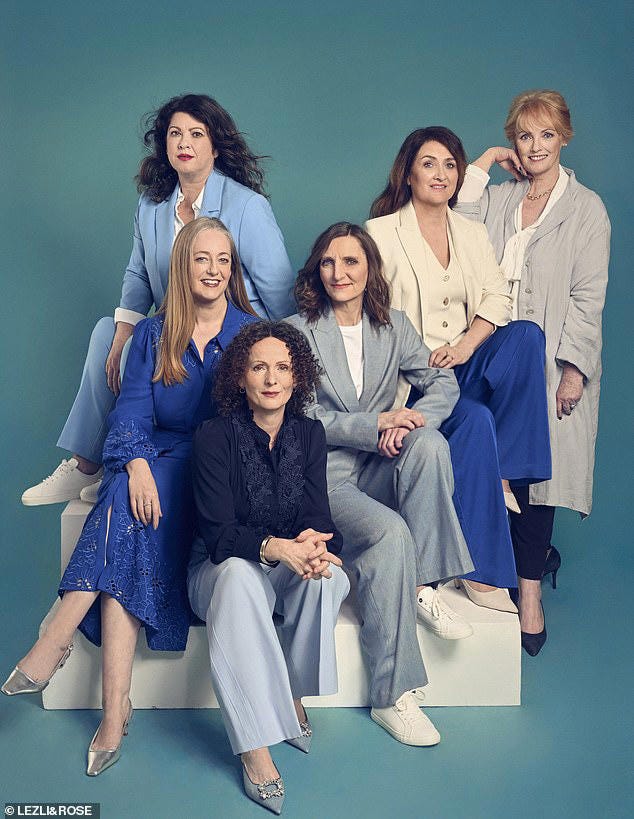
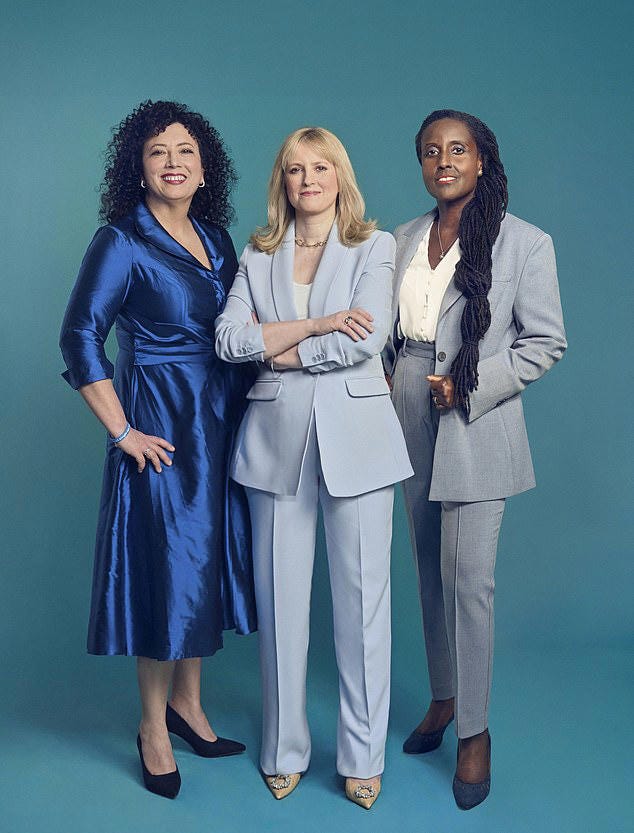
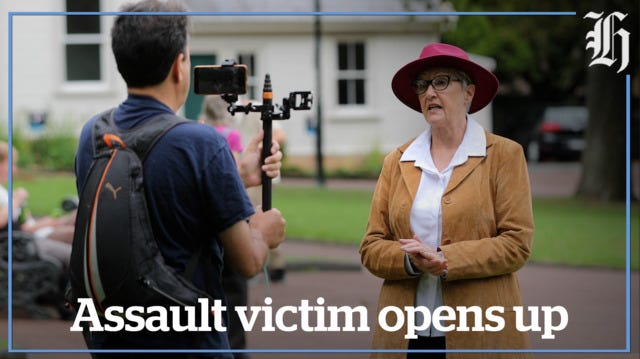
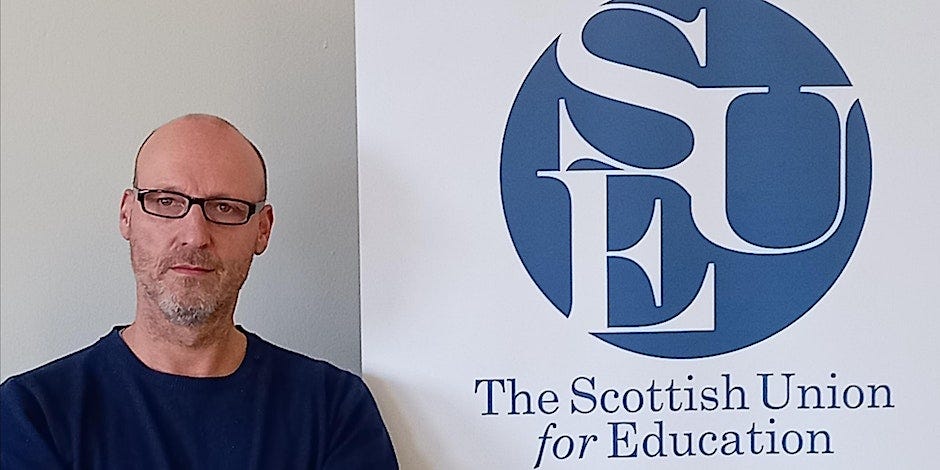
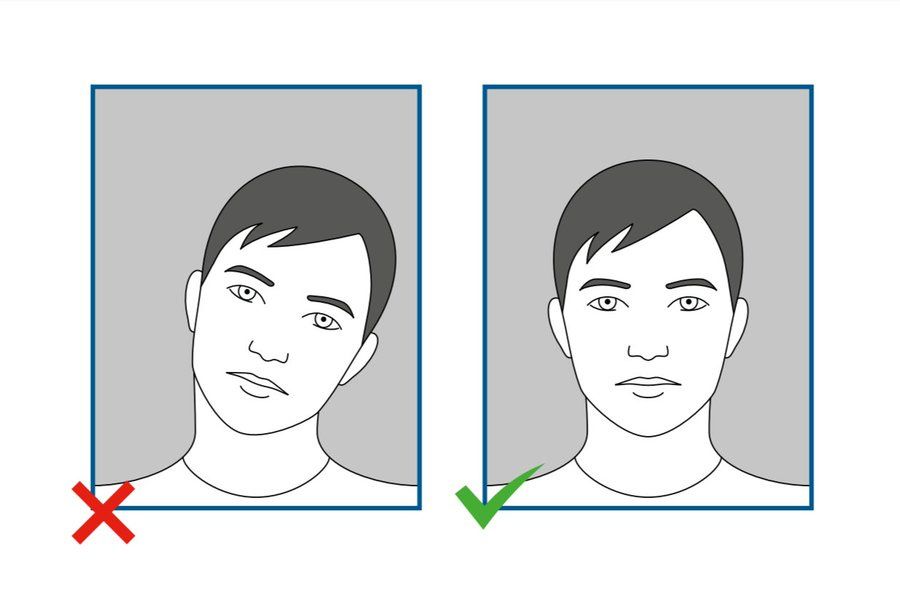
Go n-eiri leat Ireland 🍀. (can’t do the accents).
Did you notice Dr Bouen in the T Trend piece re: a 12 year old… “ psychological tests weren’t necessary as a transgender doctor knows when a child is trans”. 😳
I think the way around misgendering laws is to invoke the ninth commandment- that it is against our beliefs to lie. I don’t see how that could be opposed because religious belief is protected under the Equality Act.
Agree, real kick in the teeth for KJK. I expect she’s used to it though.
Enjoy the rugby Dusty.
Considering your last section - "Beam Me Up Scotty (He/Him)" - isn't this just an example of commentators using their personal right to free speech along with intending to show their respect for the humanity of the perpetrators? That we should not be criticising this is what people like Sarah Phillimore, Andrew Doyle and Helen Joyce are currently condemning other Gender Criticals for doing.
I hope you don't intend to be judging commentators for exercising free speech?